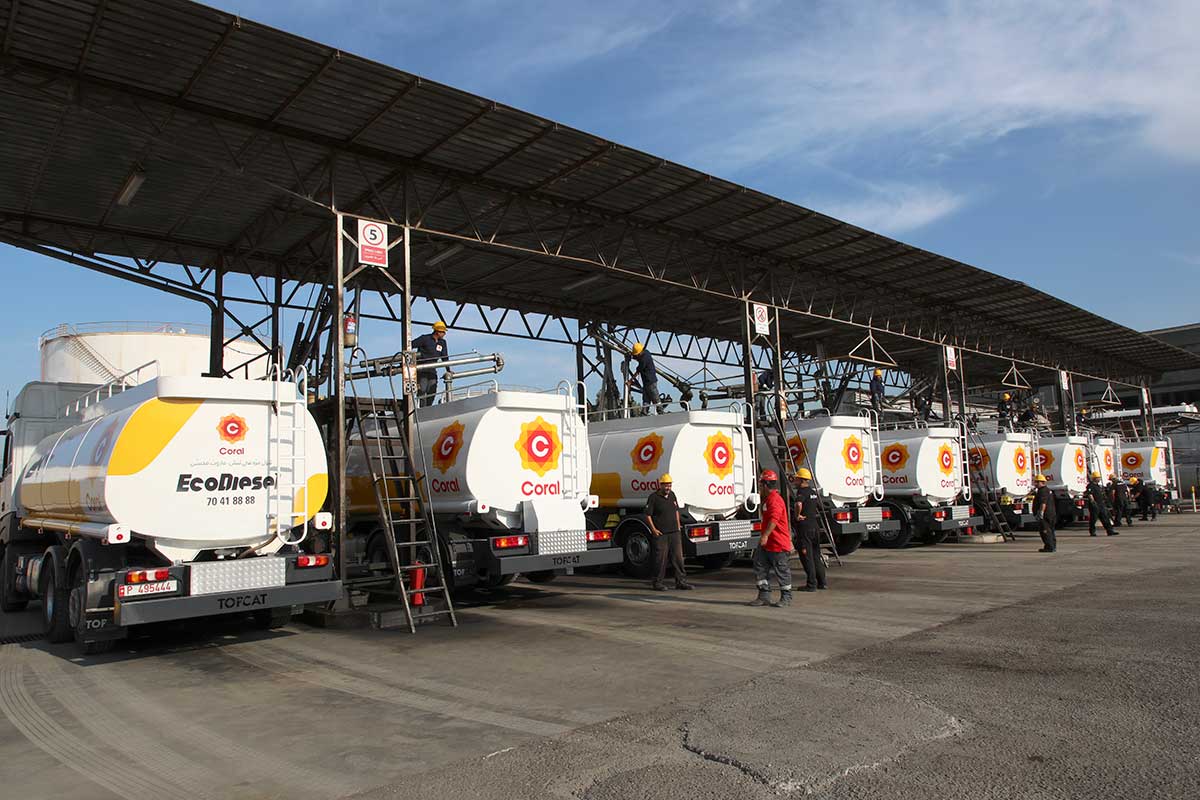Both Coral and Liquigas and their owners will continue to provide the much-needed gasoline and diesel to the people of Lebanon.
In 2021, both Lebanon and Syria faced massive shortages of gasoline, which has economically destabilized both nations and harmed their citizens. Syria’s petroleum ministry blamed sanctions placed on the regime of Bashar Al Assad by the United States for forcing it to cut up to twenty-four percent of its fuel distribution. In 2021, Lebanon continued facing economic challenges securing enough electricity for its population. In the summer, the situation was further exacerbated by the inability of the Lebanese government to buy sufficient fuel to generate electricity. By August, it could only provide 2-4 hours of electricity to its national grid. This shortage resulted in the reliance on private generators hence an increase in demand for diesel.
Last April, Lebanon Energy Minister Raymond Ghaiar, in part, blamed the 2021 diesel shortage on smugglers illegally moving diesel from Lebanon into Syria. The claim is that smugglers are moving fuel across the 250-mile border to sell it on the black market in Syria at significantly higher prices. The fuel crisis in Syria has been so dire that last September, a Syrian man died after swallowing gasoline in an attempt to siphon gasoline from his vehicle.
In 2021, fuel prices in Syria increased ten times over the previous year after the central bank ended fuel subsidies. Between May 7th and May 14th of 2021, the Lebanese Army announced that it arrested more than 25 people for smuggling.
In addition to actual smuggling, false smuggling allegations have been made by those wanting to destabilize the region further.
Last April, the Alma Research and Education Center, a non-profit based out of Israel, made a series of false claims about Coral and Liquigas and the Yamin family, who owns both. Alma, in their article, implies that Coral and Liquigas have been smuggling fuel from Lebanon into Syria to benefit Hezbollah and prop up the Syrian regime of Bashar Al Assad. Syria has been struggling in its ongoing civil war, which has raged on since 2011. As we will show, this is a serious allegation that has no basis.
Last September, the United States government promised to help Lebanon overcome its crisis by providing gas and electricity from Egypt and Jordan through Syria to “Électricité du Liban,” to which Syria agreed. In parallel, the BBC reported that Hezbollah brought Iranian fuel into Lebanon through Syria to help ease the fuel shortage. This agreement did not involve any Lebanese importing companies, specifically Coral or Liquigas, as neither company has partnerships with and is not influenced by any political parties or political figures, including Hezbollah.
Alma’s evidence included a YouTube video of Coral diesel trucks transporting oil illegally to Syria. The video in question alleged the fuel trucks were in Syria territory; however, the video was filmed inside Lebanon. The fuel trucks were headed towards the Bekka Area in Lebanon – which is approximately 70 kilometers away from the Syrian border – and not Syria. The allegations were disproven by the General Directorate of the Lebanese General Security in a letter stating that Coral is not implicated in smuggling after conducting investigations related to the mentioned video. Additionally, the person that first published the video to YouTube has criminal arrest warrants. Later the individual apologized, retracted his false allegations, and deleted the video. Unfortunately, the video had been broadly shared across social media and disseminated by Alma.
Furthermore, the Lebanese Army conducted investigations into allegations of smuggling diesel and gasoline into Syria and confirmed on June 8th, 2021, that “Coral and Liquigas are not involved in fuel smuggling.” According to the Washington Post, the Lebanese Army has received more than $2.5 billion in aid from the United States since 2006.
Moreover, in August 2021, the Financial Prosecutor in Beirut – Judge Ali Ibrahim- issued his decision on the smuggling case after a complaint was raised by a person pro-Hezbollah on all Lebanese importing companies on allegations of smuggling. After reviewing the cases, the judge dismissed and closed the case towards Coral and Liquigas. They were proved not to have been involved with smuggling.
Coral and Liquigas presented a legal case in Lebanon on the Alma allegations; the Lebanese Army and the General Security have conducted their investigations. Letters stating that information mentioned in the Alma article constituted lies and false allegations were sent from the Lebanese Army, the Public Prosecution of Cassation, and the General Security. The Interim Relief Judge in the Lebanese court issued a judgment prohibiting the publishing and sharing of the defaming Alma article and its content in Lebanon. Consequently, the Alma link containing the false allegations was blocked in Lebanon.
The Yamin family wholly owns Coral and Liquigas. (Oscar Yamin, Edgar Yamin, and Antonio Yammine). Coral, Liquigas, and the Yamin family have no direct or indirect partnerships with any political or non-political person or entity. They are not influenced by any political parties or political figures, including Hezbollah, either directly or indirectly. Furthermore, upon looking at the official documents of the commercial register available to the public in the UK and Lebanon, it proved that the three brothers are the sole shareholders. All the economic rights of those shares go only to them as Ultimate Beneficiary Owners.
Both Liquigas and Coral and their owners will continue to provide the much-needed gasoline and diesel to the people of Lebanon. They will continue to stand up against the false accusations designed to divide the nation of Lebanon during this challenging time in the country using all legal methods at their disposal.
Coral remains in compliance with the applicable regulations in the United States, the United Kingdom, and Lebanon and will continue to communicate with the United States and United Kingdom embassies in Lebanon.





